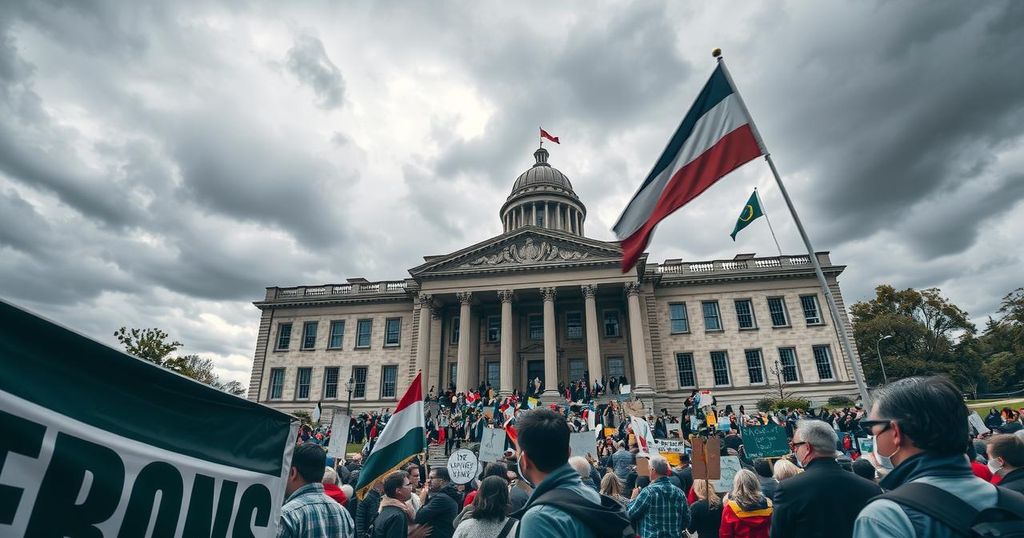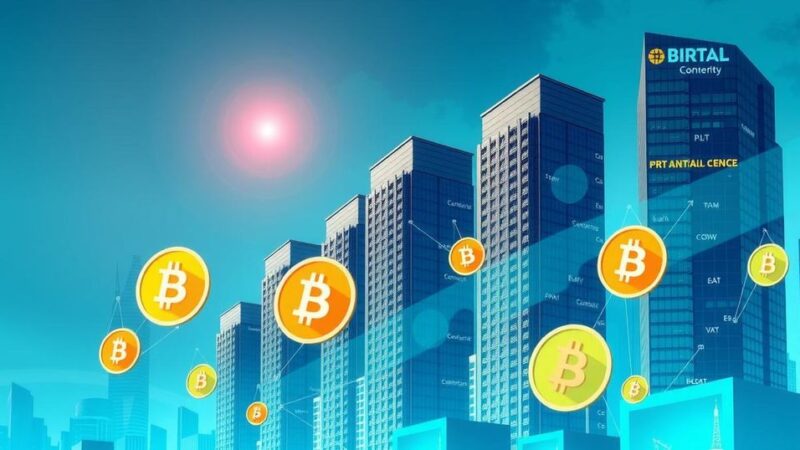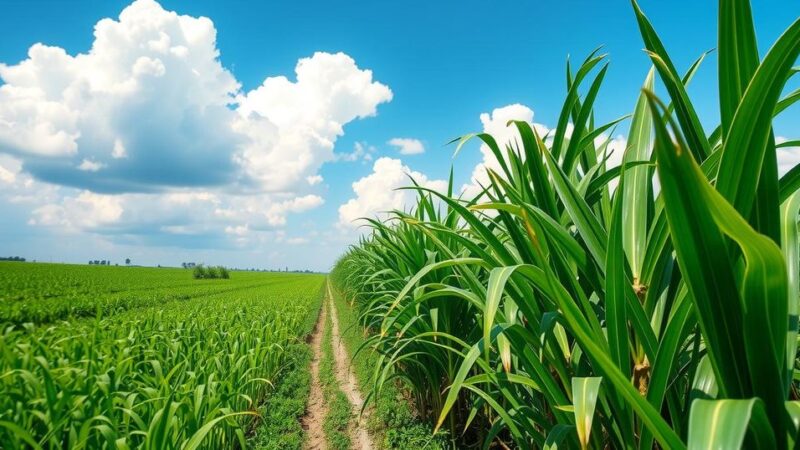South Africa’s Finance Minister introduced a revised budget with a smaller VAT hike, increasing it to 16% by 2026/27. This proposal faced immediate rejection from the Democratic Alliance, emphasizing economic growth concerns. The budget allocates significant funds for infrastructure improvements and addresses urgent public service needs, yet the opposition highlights potential negative impacts on citizens’ welfare.
On Wednesday, South Africa’s Finance Minister Enoch Godongwana presented a revised budget that proposed a smaller increase in value-added tax (VAT) than previously planned. The original budget included a controversial two-percentage-point VAT hike, which was rejected prior to its release. The new budget outlines a one-percentage-point increase in VAT, raising it to 16 percent by the 2026/27 financial year, implemented in two increments: 0.5 points in 2025/26 and another 0.5 points in the following year.
The revised budget was met with disapproval from members of parliament, particularly from the Democratic Alliance (DA), a significant party in South Africa’s coalition government. DA leader John Steenhuisen strongly criticized the budget and emphasized their commitment to advocating for economic growth and job creation. In addition to the VAT increase, Godongwana indicated that there would be no inflation-linked adjustments to personal income tax brackets used for financing government spending.
Current inflation stands at 3.2 percent, and Godongwana remarked that raising corporate or personal income taxes would be counterproductive, potentially hindering investment and economic growth. He noted, “VAT is a tax that affects everyone.” South Africa’s economy, despite being the most industrialized on the continent, is grappling with a staggering unemployment rate exceeding 32 percent, severely impacting youth employment and exacerbating social inequality, a remnant of the country’s apartheid past.
The World Bank estimates that approximately two-thirds of South Africa’s 62 million citizens live in poverty. In 2024, the economy grew by a mere 0.6 percent, stunted by deteriorating infrastructure and frequent power outages linked to corruption and mismanagement. Godongwana acknowledged urgent service delivery needs that are critical for achieving the government’s developmental objectives.
The budget allocates over one trillion rands (approximately $54.4 billion) for enhancements to transportation, energy, and sanitation infrastructure within three years. Funds will also be directed to strengthen the capacity of the South African Revenue Service in light of significant revenue shortfalls. However, the DA expressed that in its current form, the budget would impoverish the citizens of South Africa and jeopardize the government’s future. They criticized the African National Congress for disregarding warnings against tax hikes, asserting their intention to withhold support for the budget in parliament.
In summary, South Africa’s revised budget proposes a smaller VAT increase, seeking to address pressing economic challenges amid widespread dissatisfaction. The Democratic Alliance’s immediate rejection underscores the contentious nature of tax policy in the country, where high unemployment and poverty levels persist. The budget aims for essential infrastructure improvements but faces significant opposition that could hinder its passage.
Original Source: www.france24.com






